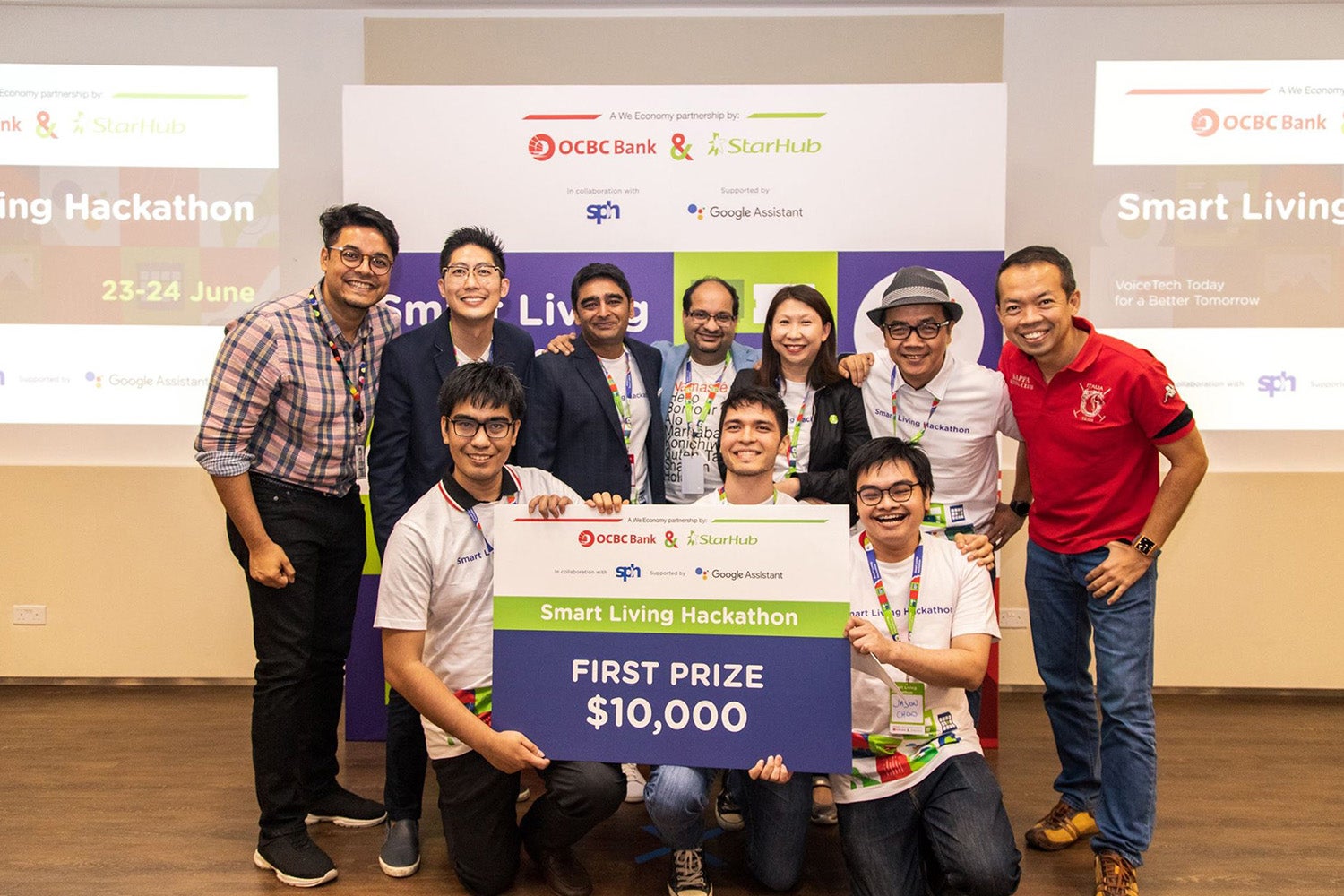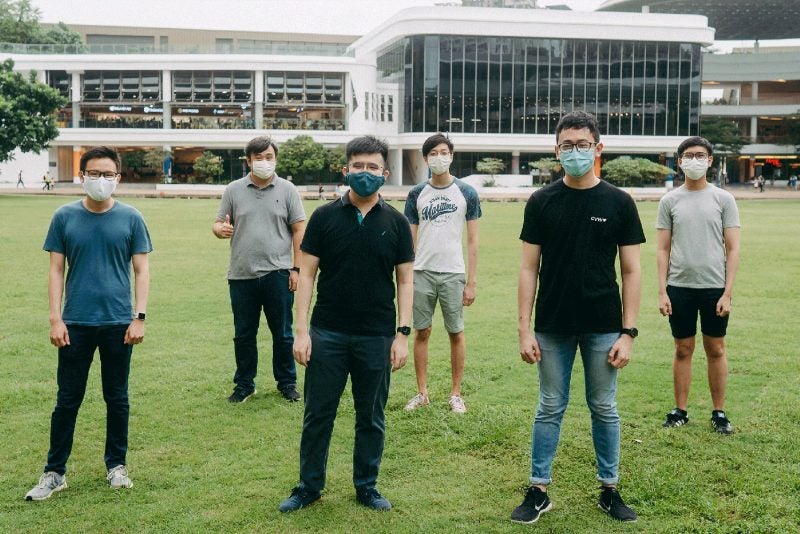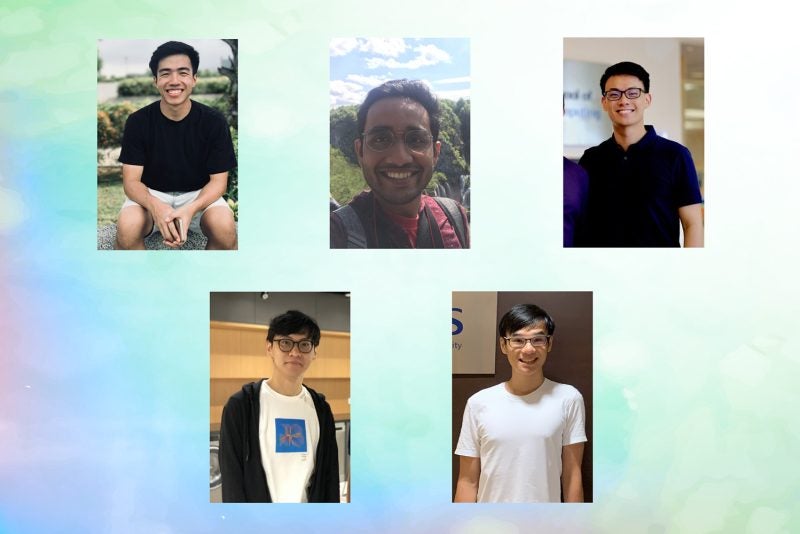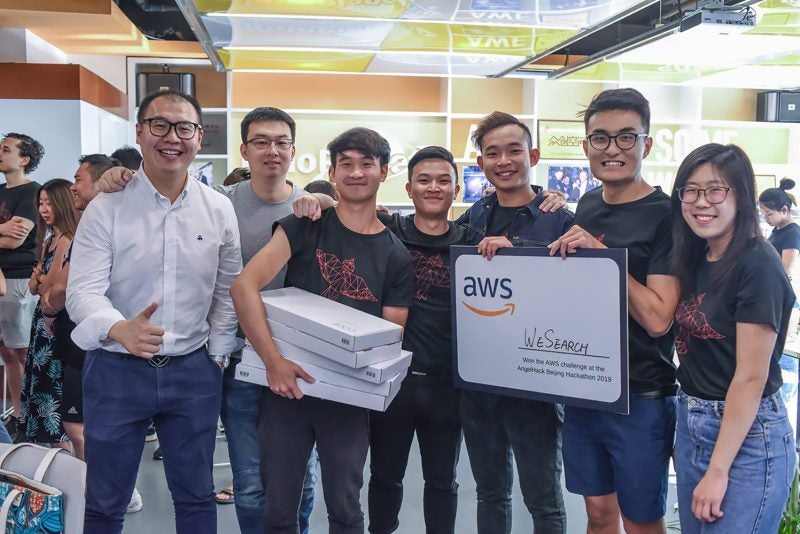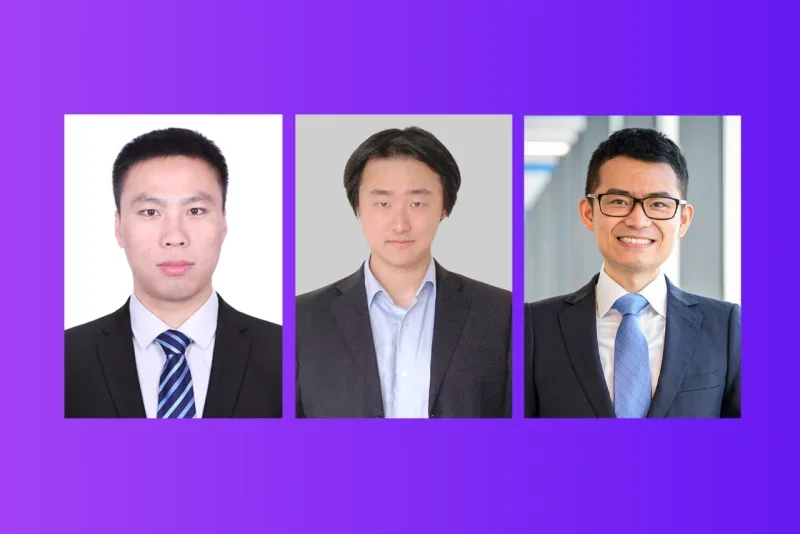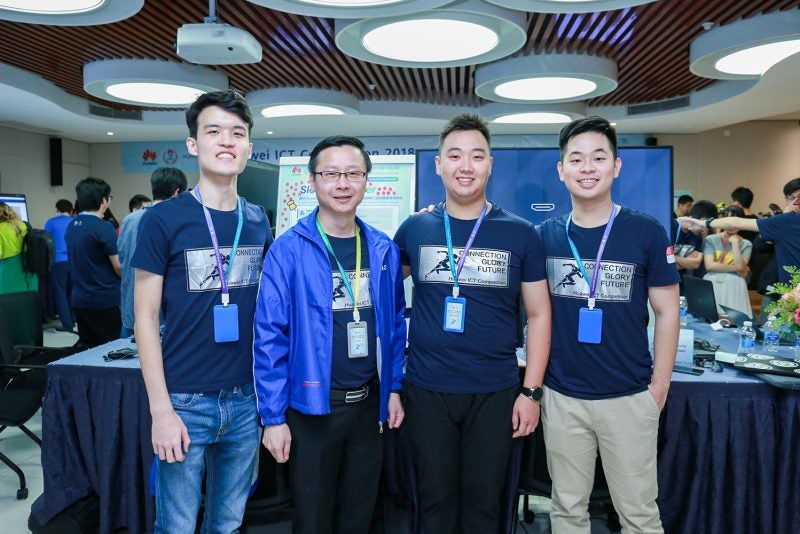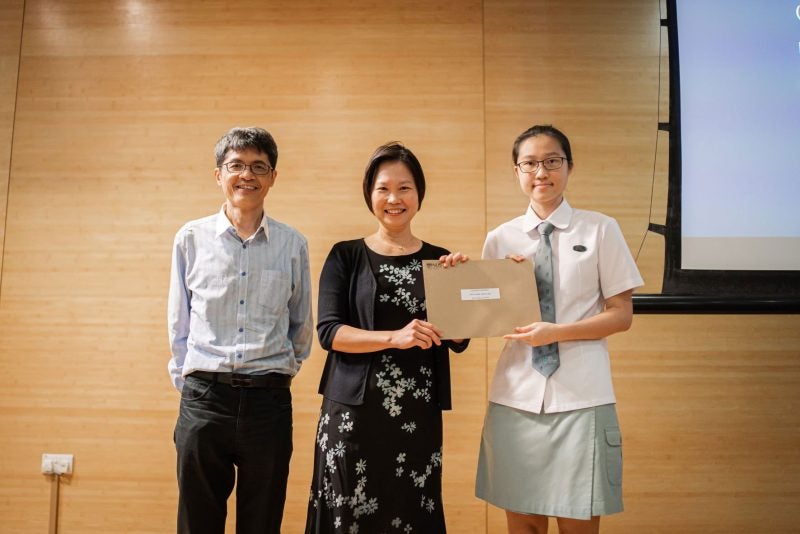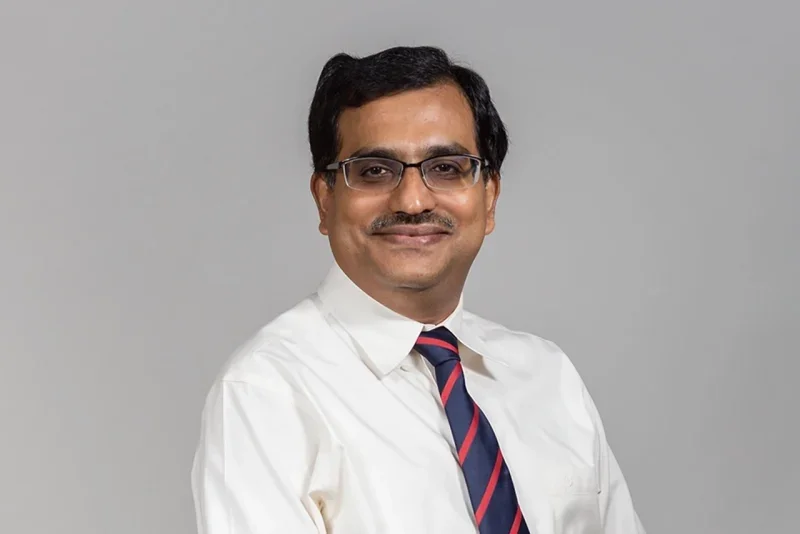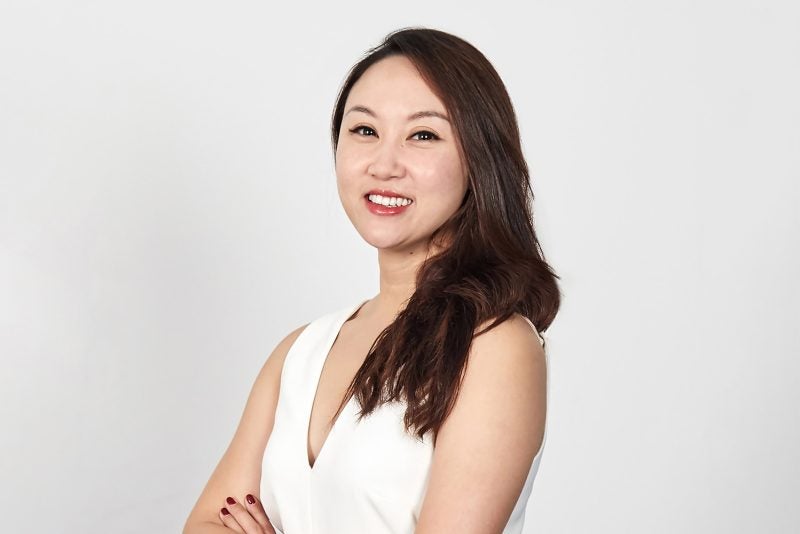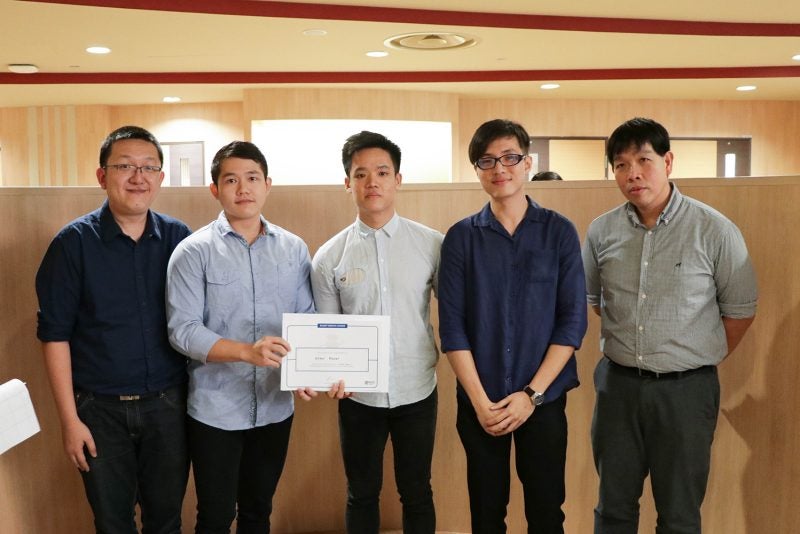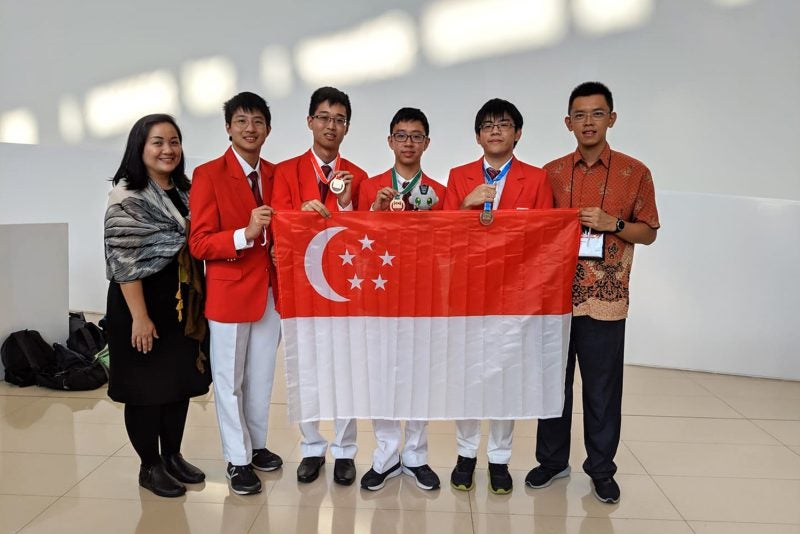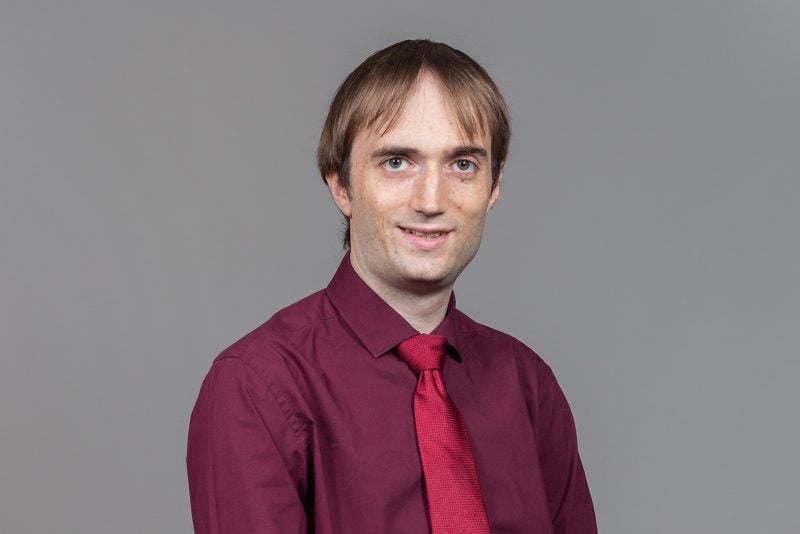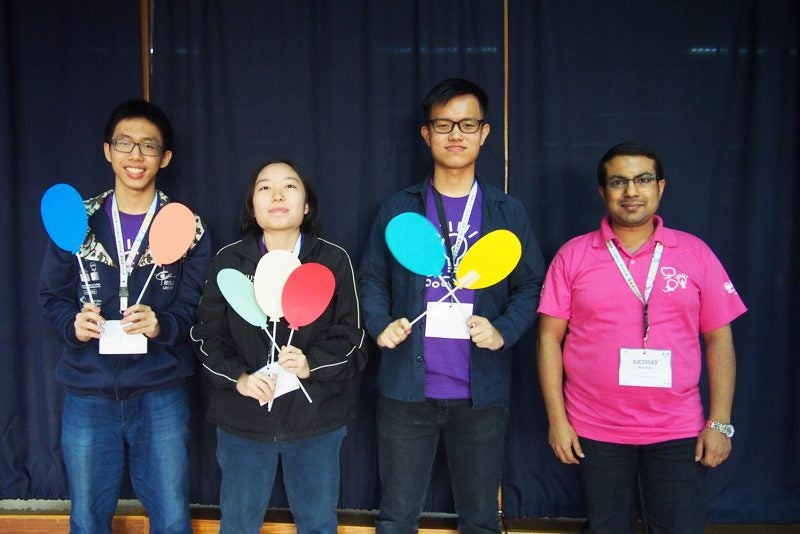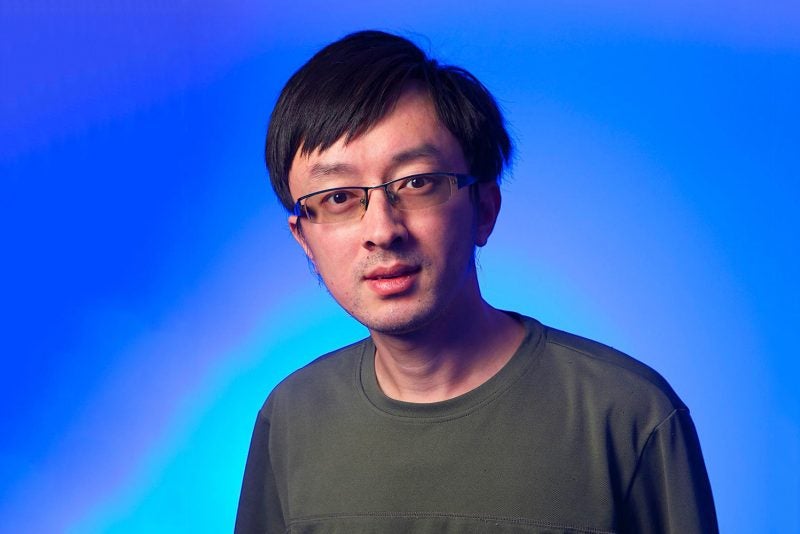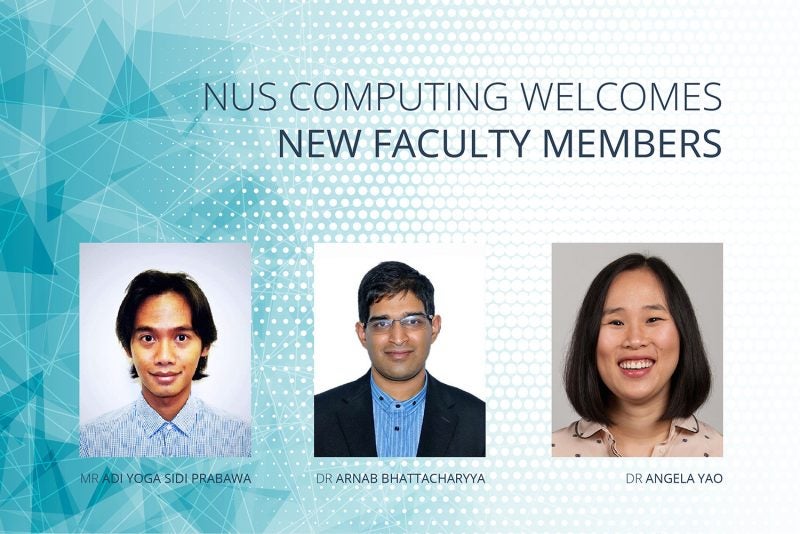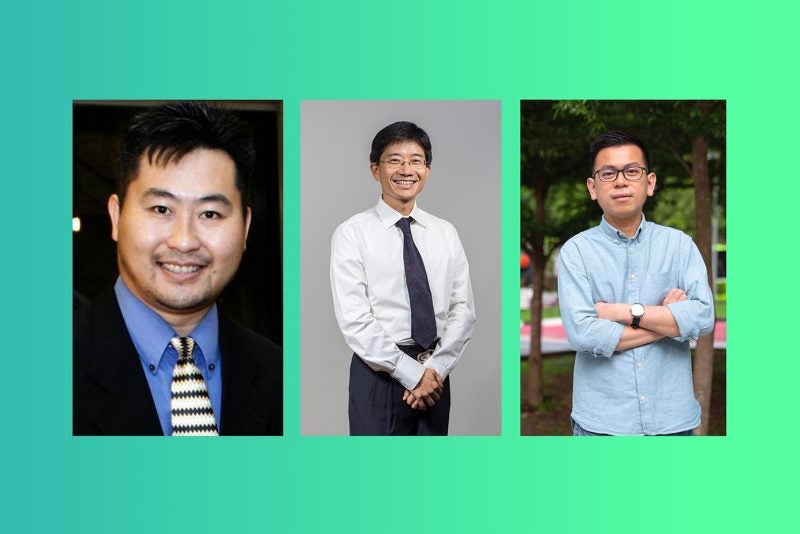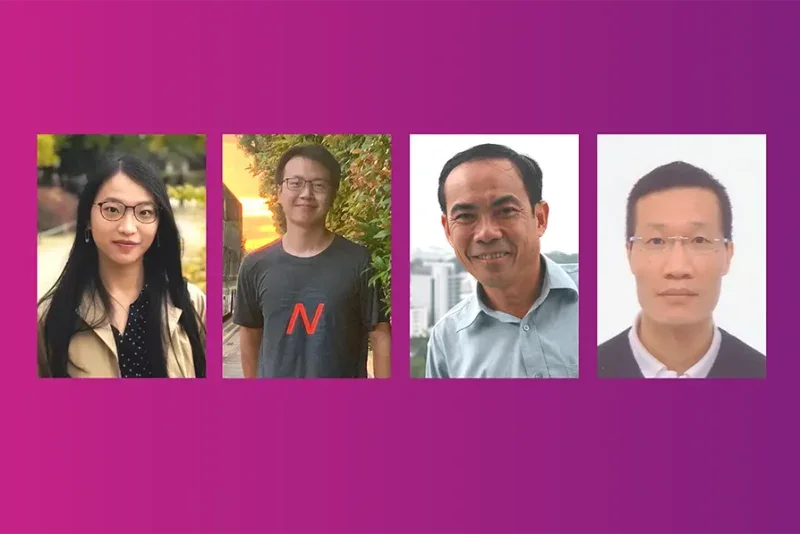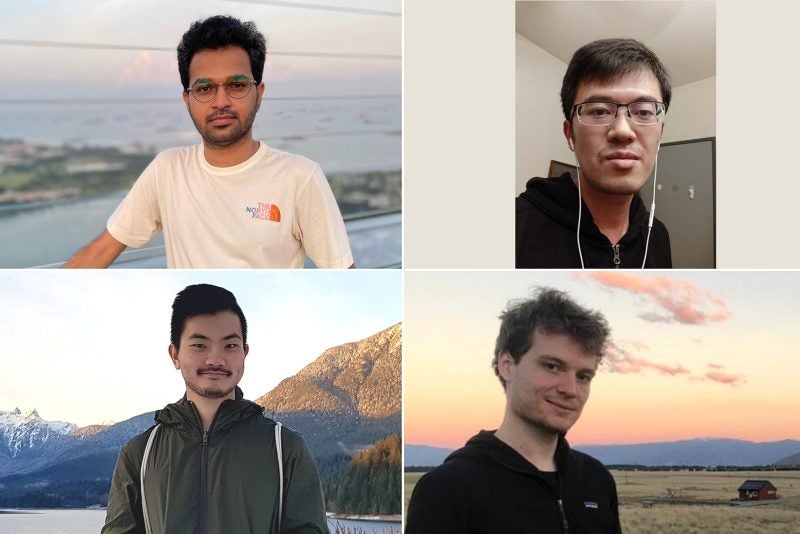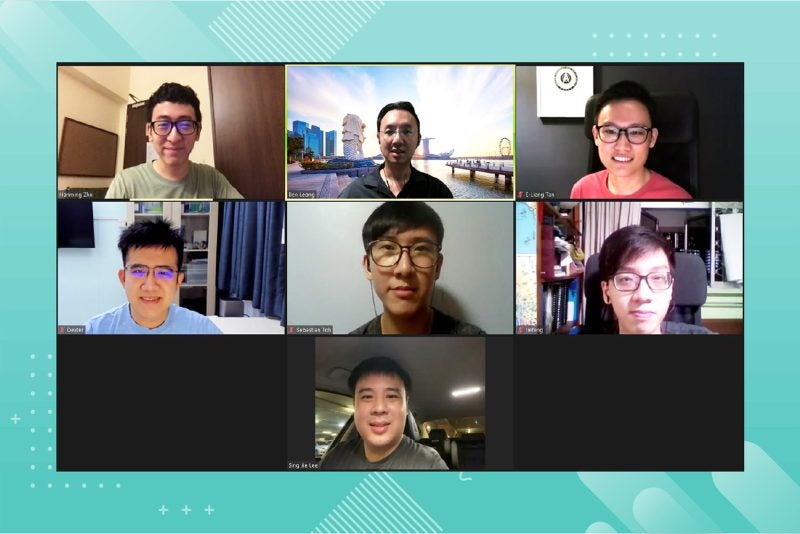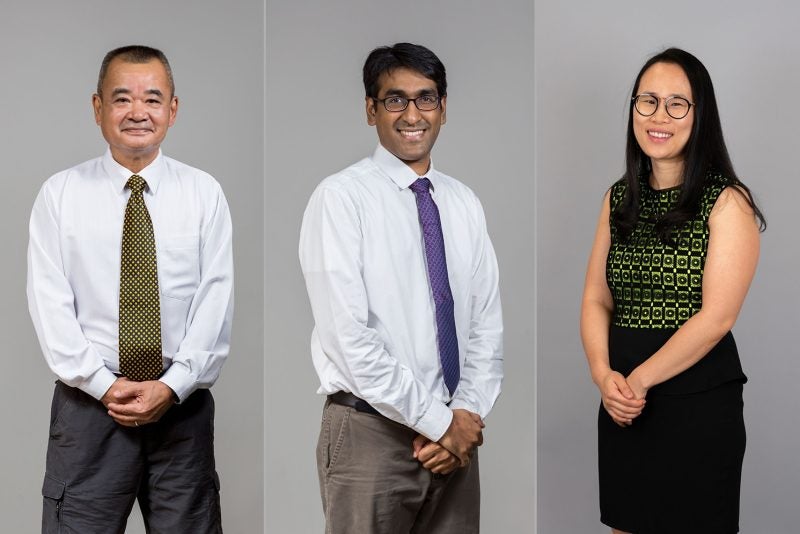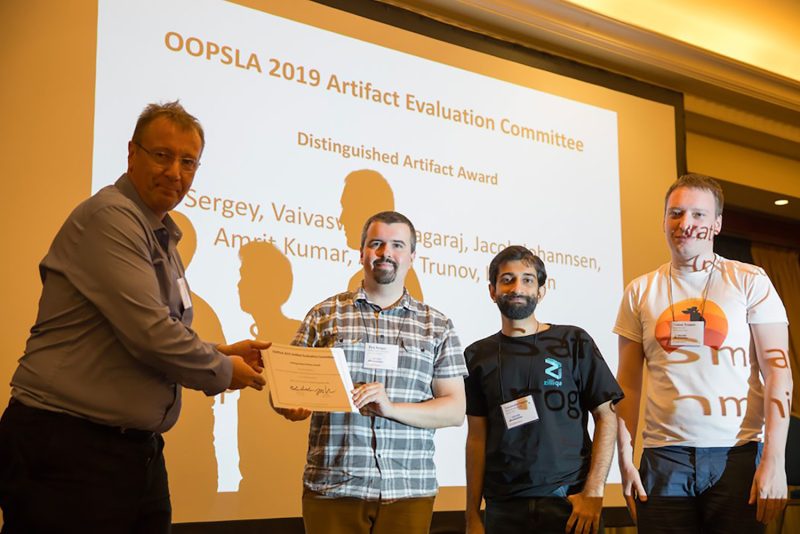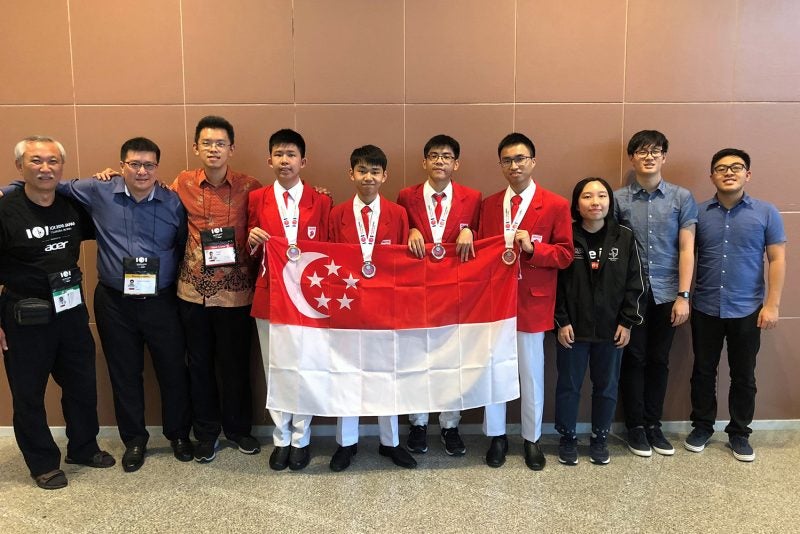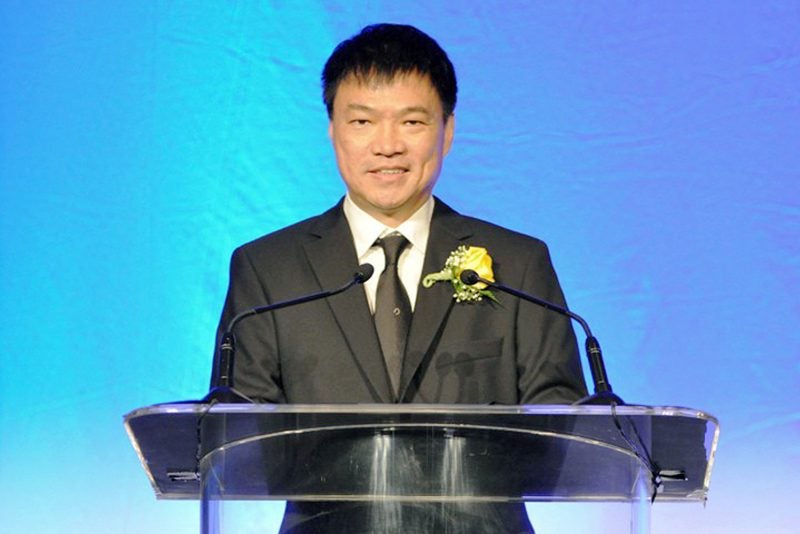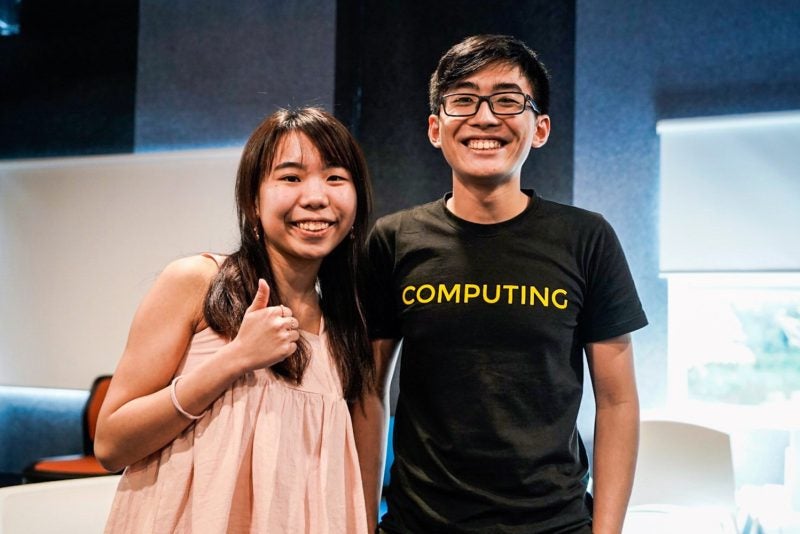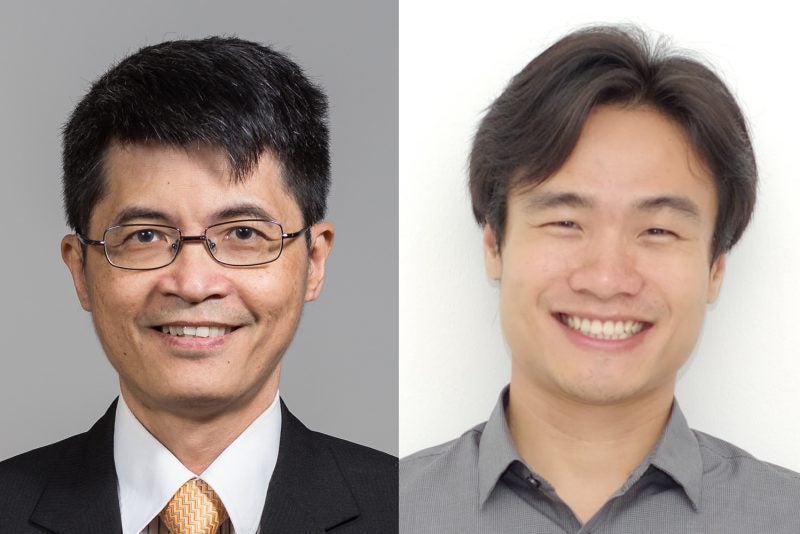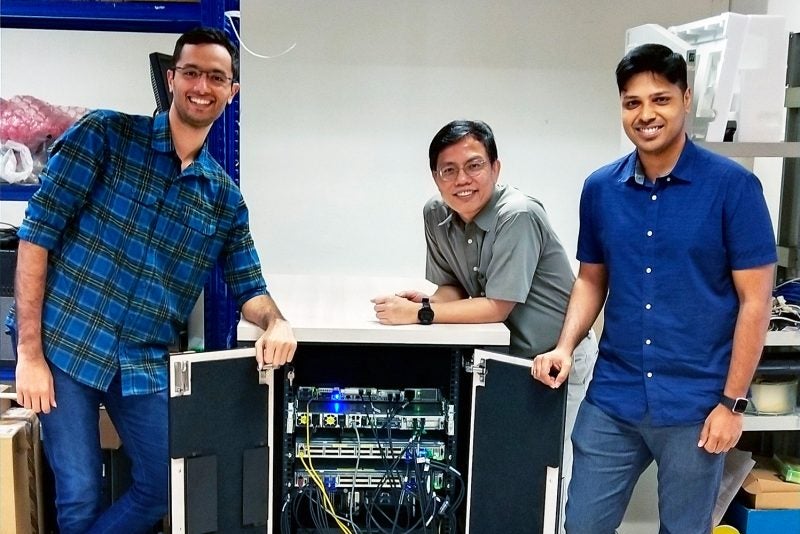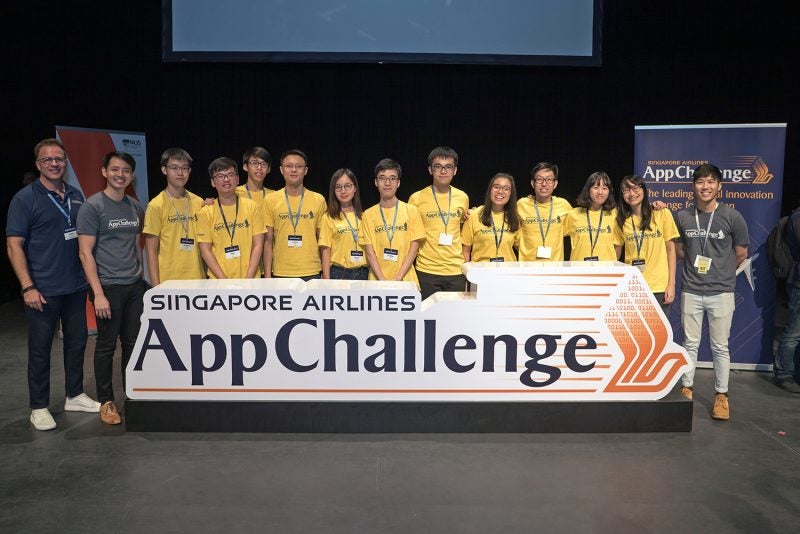2 July 2018 – Four teams comprising of NUS Computing students and alumni swept up four of the five prizes at the Smart Living Hackathon, which was held from 23 to 24 June.
The hackathon was organised by OCBC Bank and Starhub, in collaboration with Singapore Press Holdings and supported by Google Assistant. Thirty-five teams of four were challenged to develop unique solutions using voice technology to change the way people work or live.
NUS Computing alumnus Choo Yan Sheng and his team clinched the top prize, while NUS Computing PhD student Vanchinathan Venkataramani, NUS Computing alumni Nagappan Nachiappan and Divya Sivasankaran, and their teammate won the second prize. The third prize was awarded to third-year student Jethro Kuan, NUS Computing alumna Adinda Savitri, and their team. In addition, fellow third-year student Apoorva Ullas and her team snagged the Best Hack prize.
Yan Sheng, together with NUS Mechanical Engineering alumnus Alexander McColl, Advance Engineer Mark Lven Tupa Palejaro, and Cyber Defence Account Manager Albert Puah, developed a working prototype called Persona, a voice-based personalisation agent that uses data from a user’s mobile applications to personalise existing applications and content.
“Users can use simple voice commands, such as ‘show me some news’ or book me a taxi’ for personalised news content from different services and a single step taxi booking, instead of going through multiple steps of clicking through the app. The user only needs to say what he or she needs or wants, and Google Voice Assistant will use your existing data from previous apps to complete the rest of the steps. It is also the first application in Singapore to book a taxi successfully using Google Assistant by voice,” explained Yan Sheng.
Yan Sheng added, “We did not expect to win as there were many teams with good ideas and working prototypes. One interesting project was a mother and son team that developed a voice-based agent that can understand the Chinese Hokkien dialect and translate the commands to buy groceries on e-commerce platform Redmart. When we learnt about the results from the organiser, we were very shocked as we were too excited to think and react properly during that moment.”
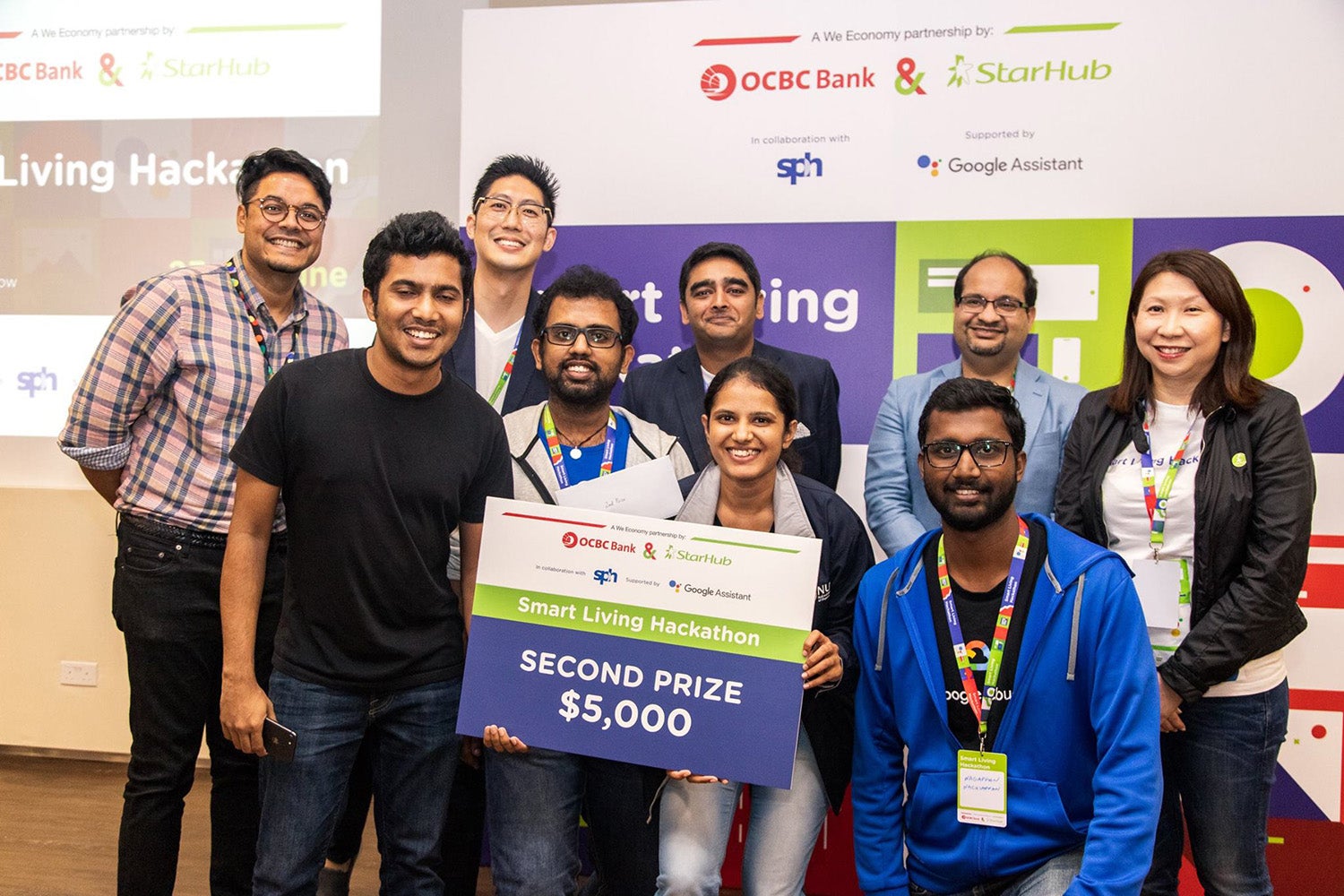
Computer Science PhD student Vanchinathan Venkataramani, Computer Engineering alumnus Nagappan Nachiappan, Masters in Computer Science graduate Divya Sivasankaran, and NUS Mechanical Engineering alumnus Elayabharath Elango clinched the second prize of $5,000. The team developed an application that simplifies the process of buying groceries – users only need to use their voice to make purchases online.
“Our application can order multiple ingredients for recipes and preset-packs. For example, the user can tell Google Home Mini that he wants to bake brownies, and the application will suggest the relevant ingredients like eggs, flour, sugar, and add it to the shopping cart. Other features include upselling based on user purchase history, recommending discounts and promotions, and informing users of the remaining amount for free shipping,” explained Vanchinathan.
“Winning the second prize is a great way to celebrate our 10th year anniversary since we arrived in Singapore and started our undergraduate chapters in NUS and the School of Computing,” Vanchinathan added.
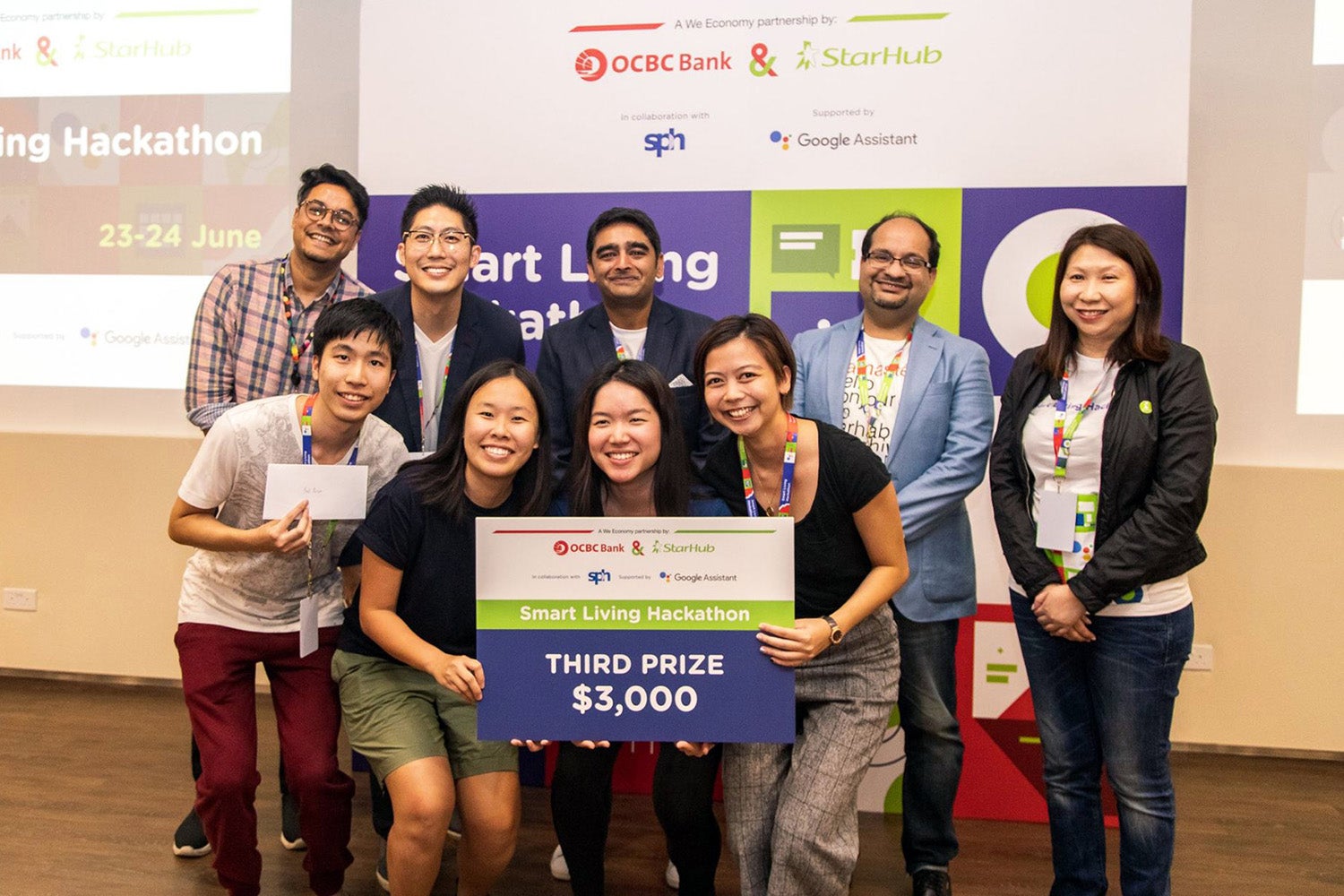
Third year Computer Science student Jethro Kuan and NUS Computing graduate Adinda Savitri won the third prize of $3,000, together with Carousell Software Engineer Christabella Irwanto and NUS Electrical Engineering alumna See Yishu. The team developed Lumos, a voice journaling application with cognitive behavioural therapy techniques to support users with depressive thoughts. The application records audio logs of a user’s daily life and provides a relaxing and non-judgmental environment to help users manage their mental wellbeing. “Many of us found journaling to be helpful, and we felt that our voice is a natural medium to share our thoughts,” explained Jethro.
The team struggled to make Lumos commercially viable, as a large part of the judging criteria included the application’s commercial appeal. However, the team decided to stay true with the nature of Lumos, and to focus their attention on perfecting the technology.
“Many of the teams viewed Google Assistant as a transaction-based technology, and so they built systems like financial tracking. We wanted to build something that is meaningful and could help foster a healthy long-term relationship between humans and artificial intelligence. I think being the only product that showcased this angle of voice technology won us the prize,” Jethro added.
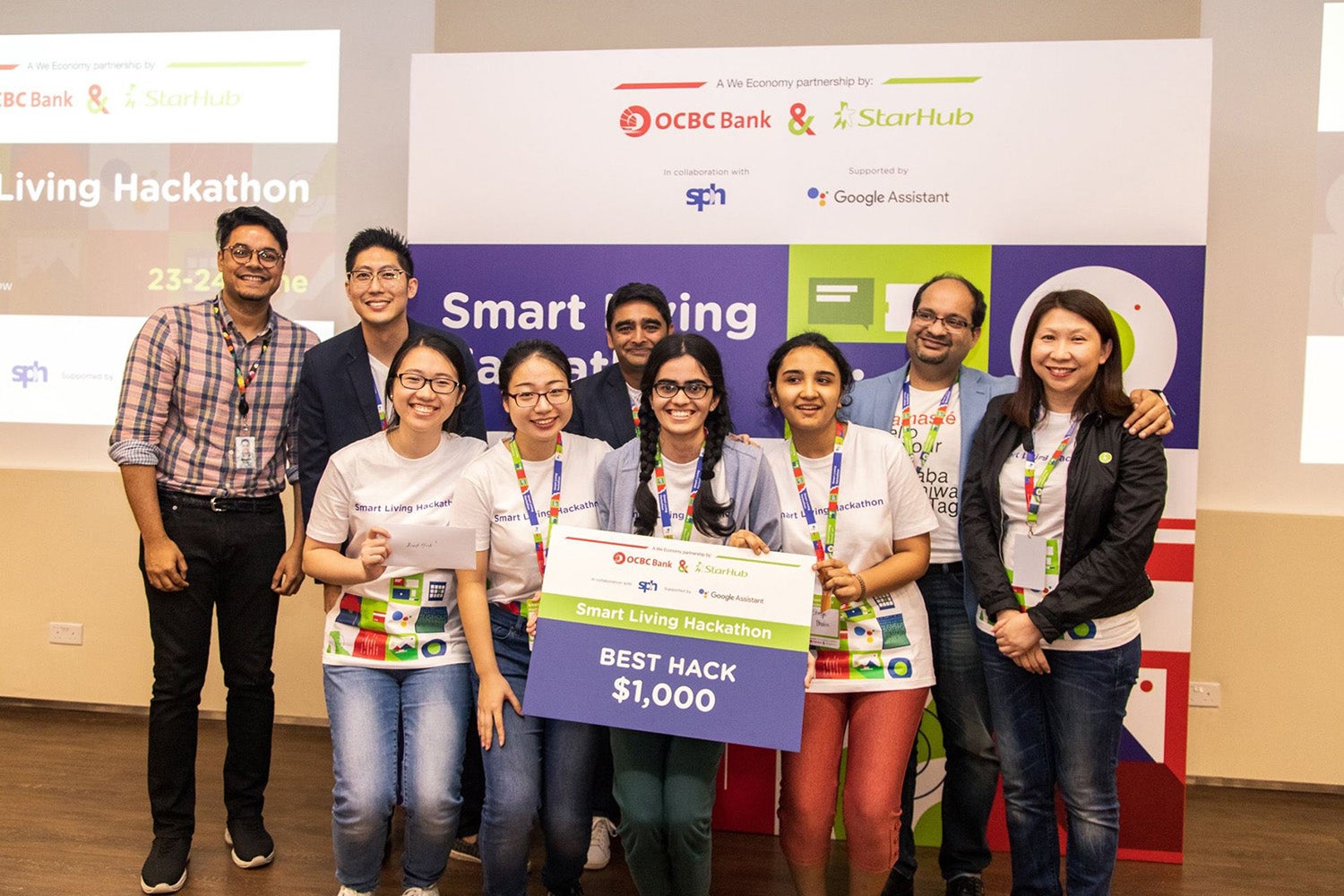
Apoorva Ullas, third year Computer Science student, teamed up with NUS Electrical Engineering students Shreya Bhatia and Shen Chenhui, and Columbia University Computer Science student Qiu Biqing, to win the Best Hack prize. The undergraduate team merged computer vision and voice technology to improve the quality of customer care services.
“It’s the experience of working with my team that made this hackathon memorable for me. We all worked really well together, and each of us had our own area of expertise to contribute in. We were shocked when we first heard our team being announced as the winners of the Best hack prize, as I felt that all the teams had done such an amazing job. However, I also felt grateful that our hard work has paid off!” said Apoorva.
News Mention:
The Straits Times, 24 June 2018

